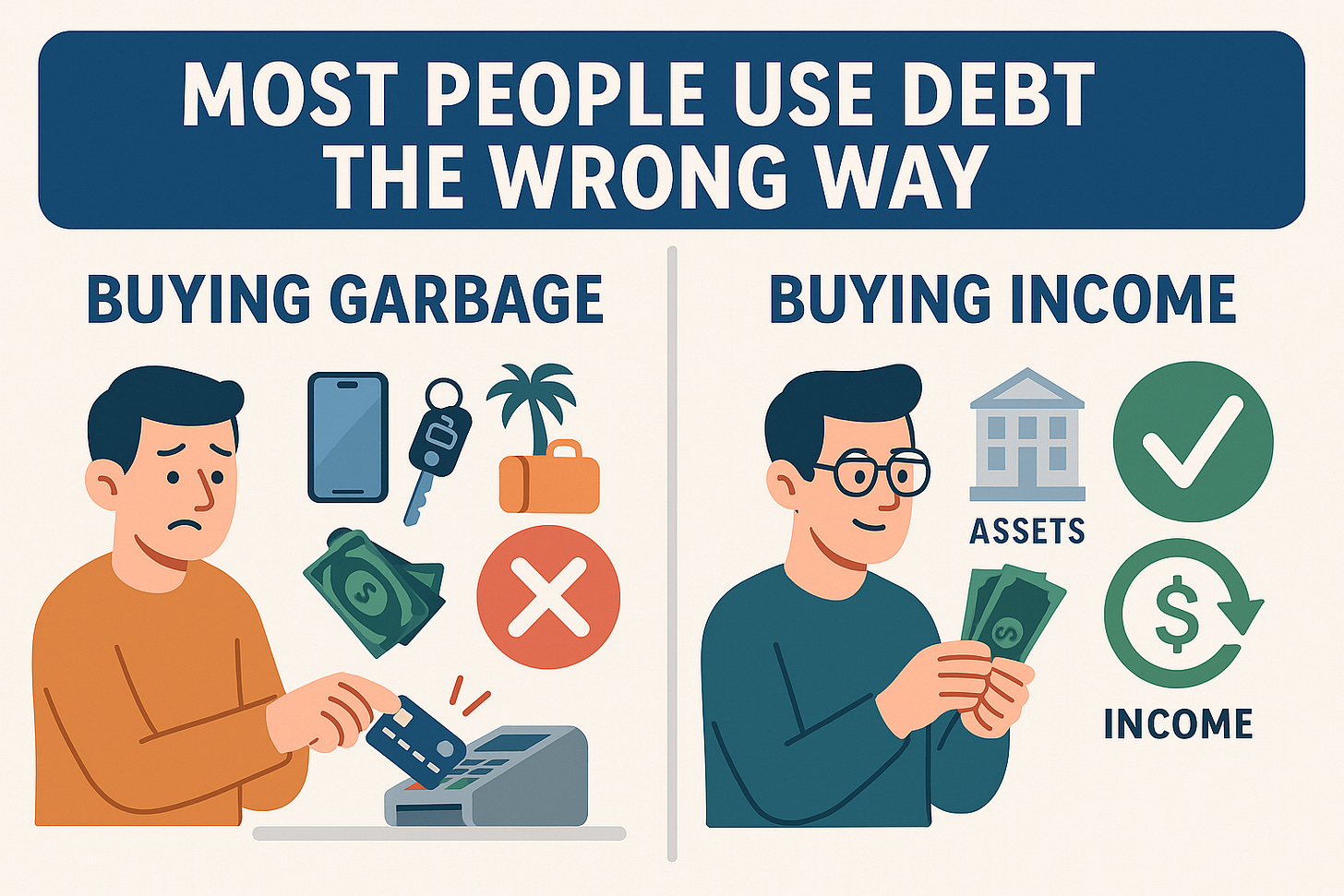Most people use debt the wrong way.
They borrow money to buy things that lose value the second they swipe. Maxed-out credit cards, financed phones, over-leveraged car payments, vacations they cannot afford, that all paid back with high interest. It is a cycle of consumption, not creation. And the system loves it that way.
Debt becomes a trap because it is marketed as a shortcut to lifestyle, not as a tool to build wealth. You're taught to borrow money to buy garbage, things that drain your account every month. But what if you flipped the entire script?
What if you used debt not to spend, but to buy income?
That is what I do. Instead of using credit to fund consumption, I use margin loans to purchase high-yield, income-generating assets. Assets that pay me every month, enough to cover the debt, grow the cash flow, and eventually allow me to own the income stream outright.
In Part 2 of this series, I introduced the concept of using brokerage margin to invest in option-based ETFs like YMAX, FEPI, and NVDY—funds that yield twenty percent to sixty percent annually. If you have not read that post yet, start there. It lays the foundation for everything I am about to show you.
Series: Using Debt To Buy Income(Part 2)
In part 1 of this series, I discussed the foundation of how option ETFs can provide us with a large stream of supplemental income. I provided several example funds for readers to look at and dissect. If you haven’t read Part 1 yet, I suggest that you go back back and check that out as it lays down the foundation to why a supplemental cash flow is extremely valuable.
Because today, we are going deeper. I will break down exactly how I structure my margin-funded income portfolio, how I manage the risk, and what safeguards I use to make sure the income outweighs the interest and eventually builds pure profit.
Most people borrow money to lose it.
I borrow money to make more of it.
📈 The Rule That Makes This Work
This entire strategy depends on one unbreakable rule. The asset you purchase must generate more income than the interest you are paying to borrow the money. That is the entire foundation. If the numbers do not work in your favor, then you are not investing. You are setting yourself up to lose.
Keep reading with a 7-day free trial
Subscribe to Dividendomics to keep reading this post and get 7 days of free access to the full post archives.






